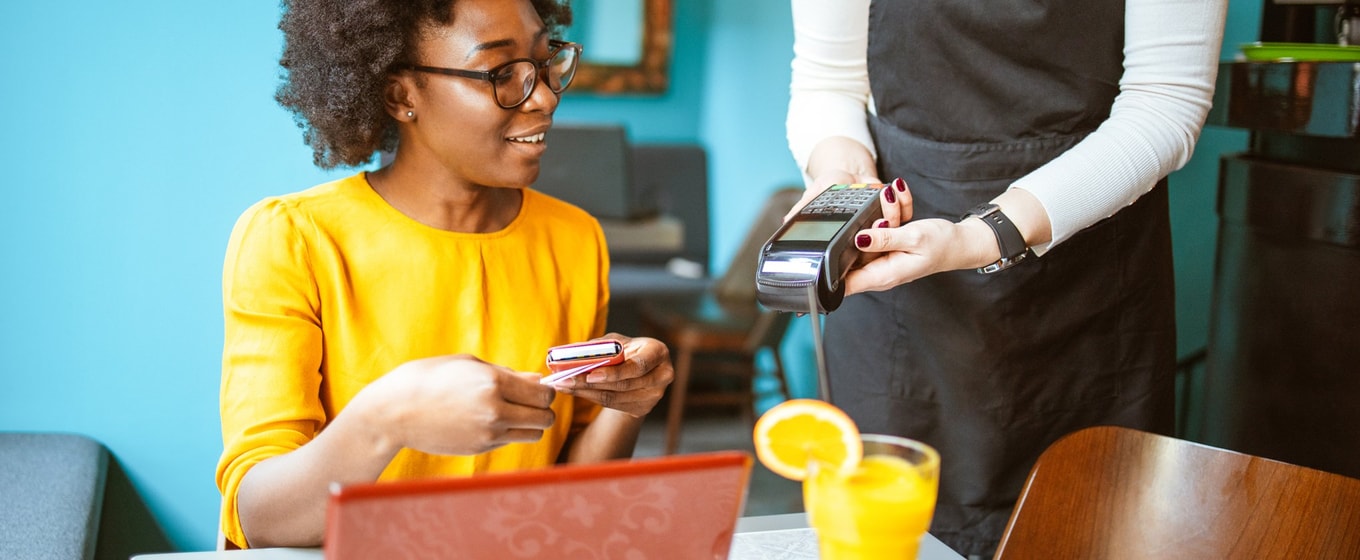Offering the right payment options to customers is vital to maximising your sales.
Difficulties at the checkout stage will result in frustrated shoppers and abandoned baskets, so providing a simple, friction-free transaction process is fundamental to improving your conversion rates.
But how do you choose the right payment methods for your business?
Consumer spending has changed considerably over the last few years, and it’s worth researching the latest trends before selecting a payment method. While the UK has been predicted to become a cashless society for some time, lockdown restrictions accelerated the use of credit and debit cards across the population. The growth of mobile payments, which had been slow to gain traction, has also escalated among younger shoppers.
Although many businesses have decided to stop accepting banknotes and coins, cash remains the second most popular form of payment, particularly among older shoppers. As habits continue to fluctuate, you may need to provide more than one payment option to appeal to a wider audience.
It’s important to find payment options that accommodate as many customers as possible, but also fit with your business needs. To help, we’ve explored some of the most popular methods among UK consumers:
Cash
Cash has traditionally been a primary form of payment in the UK.
This type of payment has been favoured by some small businesses because it means the money is received instantly, rather than waiting for a transaction to clear. This can help business owners manage their finances and prevent gaps in cash flow.
Unlike card payment systems, there are no transaction fees associated with cash. If you're operating with narrow profit margins, these savings can be highly beneficial.
However, as many consumers are demanding more convenient payment options, cash-only businesses may find their customer base is limited.
Card
Credit and debit cards have become the most popular method of payment in the UK, with contactless cards alone accounting for over a quarter of all payments.
In light of this growing popularity, businesses that accept card payments will appeal to a wider audience.
The speed and convenience of contactless payments can also reduce checkout times, creating a positive customer experience, and encouraging larger purchases.
However, this option comes with a number of costs, including transaction fees and monthly service charges. As this can impact your bottom line, it's important to find the right service provider for your business. There's also a time delay in receiving payment, which can make it difficult to manage your finances if your business is low on cash reserves.
Online
To capitalise on increased online shopping habits, retailers must provide an online payment method that's easy and secure to use.
Online payments can be taken directly using bank account details, a credit or debit card, or via an all-in-one payment facilitator like Worldpay.
There are also Buy Now Pay Later options to consider, which offer greater flexibility and reduce cart abandonment.
As with physical transactions, you may need to set up a merchant account as well as a payment gateway to accept card payments on an ecommerce platform.
Getting set up can involve considerable fees, and you'll have to pay ongoing transaction charges. However, by expanding your sales online, your increased revenue stream should cover these recurring bills and still boost your profits.
Mobile
Mobile payment technology has struggled to take off in the UK, but the number of people registered for mobile payments grew by 7.4 million users during the pandemic.
Overall, contactless payments are very convenient for customers, but mobile solutions such as Apple Pay go one step further by removing the need to carry a physical wallet, enter a PIN, or sign receipts. This creates an easy, frictionless, and secure payment process that’s now expected by consumers. By responding to this demand, you could encourage more people to shop with your business rather than a competitor.
Your payment checklist
Choosing the right payment method is critical to growing your business’ sales figures and raising customer satisfaction. Follow these simple steps to narrow down the options for your business:
1. Ask your customers
Rather than guessing how your customers want to pay, survey them regularly to understand how their preferences change. Even if you’ve carried out this research before, it’s likely your customer's shopping habits have shifted since the start of the pandemic. It’s important to offer payment options that are up-to-date with the needs of your customer base, as failing to adjust your provision could result in lost sales.
2. Merchant or gateway
Look closely at how your customers are paying. If the majority use credit cards, then a merchant account is essential. Similarly, if you’re an established business with a consistent trading history, it may be possible to negotiate a favourable rate with your bank to make the paperwork and fees worthwhile.
However, many online-only businesses benefit from using a payment gateway provider that doesn’t require a dedicated merchant account to be set up, like PayPal, Zettle, or SumUp. This can be a low-cost option for ecommerce retailers and allows you to quickly start selling your products online.
3. Integrate your stores
If you have an online and offline business, consider integrating your payment systems. Customers want to seamlessly switch from physical to online buying, and it’s vital to track their omnichannel journey for a complete view of your business transactions. By upgrading to an integrated POS, you can better manage your inventory, sync your product information, offer cross-channel discounts, and gain rich data about your customers.
4. Count the costs
Merchant accounts and payment gateways come at a price, and some service providers aren’t fully transparent about the costs involved. Before signing a new contract, take some time to research the market, look at your card sales volumes, and calculate your profits after paying the processing charges, monthly service rates, terminal hire, and PCI compliance fees.
5. More mobile payments
Small businesses need to be ready to accept payments via mobile devices. Mobile payments are likely to continue growing in popularity, especially among the younger generation, so it’s important to meet this consumer expectation if you want to appeal to a broad number of consumers. Demonstrating that you're an early adopter of new technologies can also build your brand reputation, and establish your business as an industry leader that listens to its customers in order to improve its offering.
As a small business owner, it’s important to offer a range of payment options so you never have to turn away potential customers based on their choice of tender. By keeping your business flexible and sensitive to trends in consumer spending, you can ensure you always offer the right payment options at the right time.









These cookies are set by a range of social media services that we have added to the site to enable you to share our content with your friends and networks. They are capable of tracking your browser across other sites and building up a profile of your interests. This may impact the content and messages you see on other websites you visit.
If you do not allow these cookies you may not be able to use or see these sharing tools.